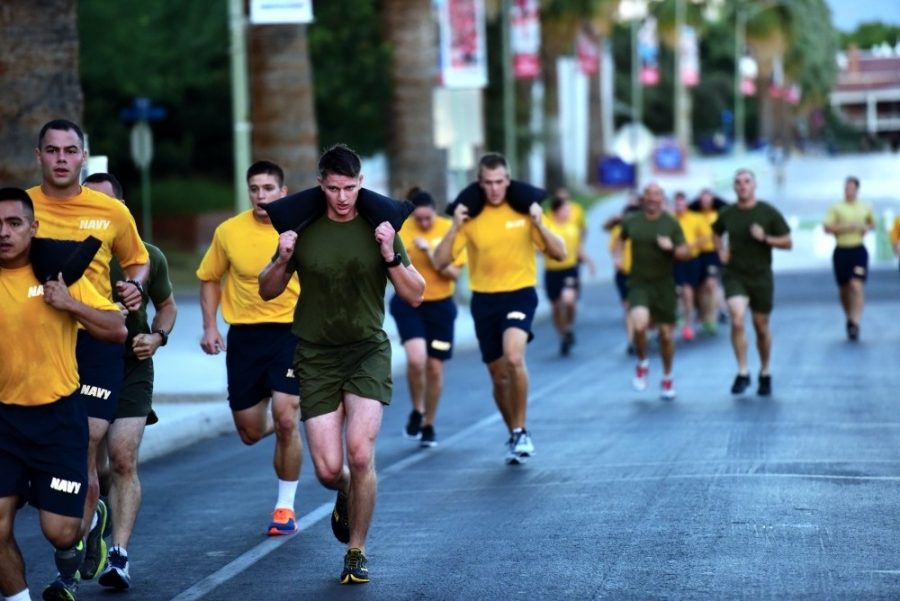The stigma that has begun to ingrain itself among many individuals in the United States and particularly on university campuses regarding the military members or the institution of the American military is disconcerting.
Conversely, animosity does not develop in a vacuum, and there is naturally a reaction to this distrust and misunderstanding of military personnel by military personnel. Simply, there appears to be a chronic set of misinformation disbursed between typically left-leaning academics and typically right-leaning members of the military.
This, of course, is a generalization that is likely the ultimate root of the disparity we see.
The fact of the matter is, these two parties ought not find themselves at odds with one another. There is far too much overlap between these two institutions — recognized or not — that is beneficial to the cultivation of a safer population and cleaner, swifter and more effective military.
This article will address the concerns of the two sides individually and then attempt to synthesize the facts and remove the stereotypes and misconceptions about the two.
First, it is no secret that the political climate at most American university campuses tends to dawn a liberal flare. That’s not a derogatory comment, or even a bad thing. It’s reasonable that students look to ideals and attempt to seek avenues of change if not at university, then following their studies and into their careers. The world needs innovators, both social and technological.
What the world does not need are scores of zealous, and often misinformed, individuals with notions of government conspiracy or anti-military sentiment. Criticism ought to be welcomed concerning all topics including military spending or war, but in an objective, fair and realistic manner.
The necessity of militaries is often underscored by several historical and current events.
The wars in Vietnam, Iraq and Afghanistan in addition to their long duration and at times controversial motivations have left many on the young left to completely abandon the idea of a useful fighting force, which the U.S. military is.
Essentially, much of this friction is being caused because of disregard for objective military necessity. We ought not to throw the baby out with the bathwater in this case.
Adjusting war-focus or resizing military priorities are reasonable means of going about changing American policy and will likely change with elections and administrations.
I should add, I’m sure most university students are not truly anti-military, this is not what I am asserting.
What I am suggesting is that the two institutions can — and do — coexist and even help one another. A good portion of weapons research is conducted at universities or produce qualified professionals who will work on military technologies.
Universities produce military officers themselves through robust Reserve Officer Training Corps programs from which cadets will become military professionals.
This is the reality of the situation. The military and university systems share common aims and practices. We should look to recognize this partnership.
OK, so what’s the problem? The issue lies in the fact that we as Americans should not blame servicemembers for the actions of policy-makers, and primarily, understand that while the reality of our military size and scope may seem excessive to many, we must not forget that these service people represent the United States and fight on its behalf — clearly.
Lest we forget that many threats still remain or have sprouted in the past several decades. The North Korean regime and its slow but sure acquisition of nuclear weapons capable of destroying American cities or those of our allies seems like a bluff considering the ramifications to the North, yet it still continues to be an issue.
Both conventional terrorism and online disruptors in terrorism organizations remain an issue, as does China’s and Russia’s increasingly hostile attitudes toward their neighbors and beyond, making them all considerations in this controversy.
The necessity of a large military must be accepted to repel potential attacks. I will end this section with a dose of cynicism in that the equalizer is that as young people grow older, they typically become more moderate, so, usually the issue solves itself.
There is nevertheless a clear and present argument for the way the military operates at the political level.
The military-industrial complex, for example, is a point worthy of criticism. That doesn’t make it realistic, or even right, but it is an academic discussion that has potential influence on the means and success of international militaries.
Long-term Middle-Eastern involvement is a topic worth discussing and changing; military efficiency; Guantanamo Bay; and a score of other topics are perfectly reasonable issues to debate.
It is not perfectly reasonable to deny the people the ability to challenge or be upset with military action and conversely react in such a way that would weaken the relationship between the academic world and military environments. They often depend on one another to remain secure and on the cutting edge.









